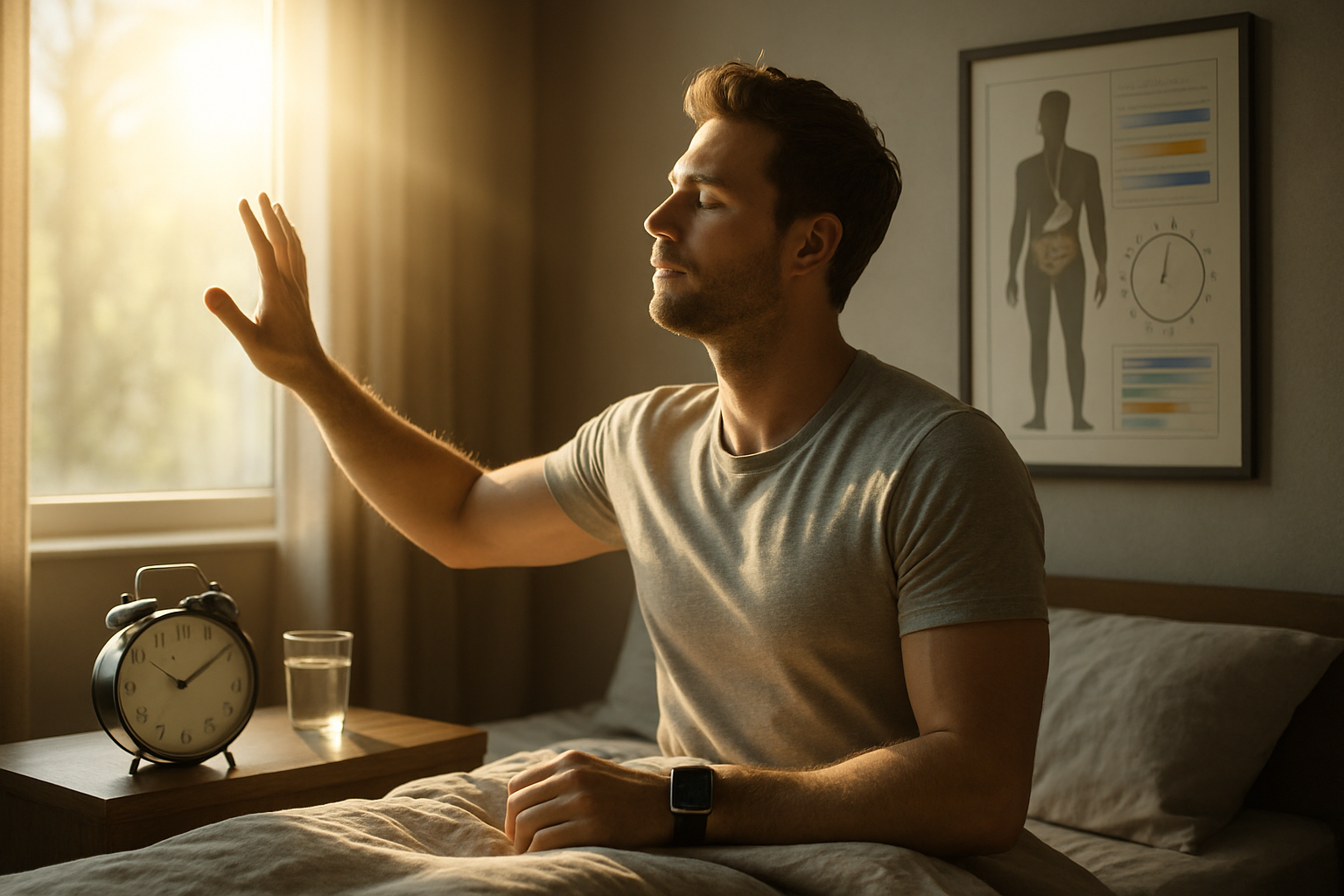Chronobiology: Aligning Your Life with Your Internal Clock
The rhythmic ebb and flow of our daily lives may seem dictated by external factors, but what if the key to optimal health lies within our own biological timepieces? Chronobiology, the study of how our internal clocks influence our physical and mental processes, is revolutionizing our approach to wellness. But how can understanding these intricate rhythms transform your health and daily routines?

The Science Behind Our Internal Clocks
At the heart of chronobiology is the circadian rhythm, a roughly 24-hour cycle that governs various physiological processes. This internal clock is orchestrated by the suprachiasmatic nucleus (SCN) in the brain, often referred to as the body’s master clock. The SCN receives light signals from the eyes, which help synchronize our internal rhythms with the external environment.
Research has shown that nearly every cell in our body has its own circadian clock, regulated by specific genes. These cellular clocks work in harmony, influencing everything from hormone production and body temperature to cognitive function and metabolism. Understanding this intricate system is crucial for optimizing health and performance.
Chronotypes: Not All Clocks Tick the Same
One of the most fascinating aspects of chronobiology is the concept of chronotypes. These are individual differences in circadian rhythms that determine when a person is most alert, productive, or sleepy. Traditionally, people have been categorized as “morning larks” or “night owls,” but recent research suggests a more nuanced spectrum of chronotypes.
Dr. Michael Breus, a clinical psychologist and sleep specialist, has proposed four chronotypes based on animal behavior: Lions (early risers), Bears (middle of the road), Wolves (night owls), and Dolphins (light sleepers). Identifying your chronotype can help you optimize your daily schedule, improving productivity and overall well-being.
Chrono-Nutrition: Eating in Sync with Your Body Clock
The field of chrono-nutrition explores how the timing of meals affects our health. Our digestive system, like other bodily functions, operates on a circadian rhythm. Research has shown that eating in alignment with these natural rhythms can improve metabolic health, weight management, and even reduce the risk of chronic diseases.
For instance, studies have found that consuming a larger breakfast and a smaller dinner can lead to better weight loss outcomes compared to the reverse. Additionally, late-night eating has been associated with increased risk of obesity and metabolic disorders, as our bodies are less efficient at processing food during nighttime hours.
Optimizing Sleep Through Chronobiology
Sleep is perhaps the most obvious manifestation of our circadian rhythms, and chronobiology offers valuable insights for improving sleep quality. By understanding your personal circadian rhythm, you can determine your ideal bedtime and wake time to ensure you’re getting restorative sleep.
Light exposure plays a crucial role in regulating our sleep-wake cycle. Morning light exposure helps to reset our circadian clock, while exposure to blue light from screens in the evening can disrupt our natural rhythms. Chronobiologists recommend creating a consistent sleep schedule and managing light exposure to optimize sleep quality.
Chronotherapy: Timing Medical Treatments for Maximum Effect
One of the most promising applications of chronobiology is in the field of medicine. Chronotherapy involves timing medical treatments to align with the body’s natural rhythms for maximum effectiveness and minimum side effects. This approach has shown particular promise in cancer treatment, where the timing of chemotherapy can significantly impact its efficacy and toxicity.
Research has also explored the chronotherapeutic approach for various other conditions, including hypertension, asthma, and arthritis. For example, taking blood pressure medication at night rather than in the morning has been shown to be more effective in controlling blood pressure and reducing cardiovascular risk.
Chrono-Hacks for Better Health
-
Expose yourself to natural light within an hour of waking to help reset your circadian clock
-
Avoid caffeine in the late afternoon and evening, as it can disrupt your sleep cycle
-
Try to eat meals at consistent times each day to support your body’s metabolic rhythms
-
Consider your chronotype when scheduling important tasks or meetings
-
Create a wind-down routine in the evening to signal to your body that it’s time for sleep
-
Use dimmer, warmer lighting in the evening to support natural melatonin production
As we continue to unravel the complexities of our internal clocks, the potential for personalized, chronobiology-based health strategies grows ever more exciting. By aligning our daily routines with our natural rhythms, we can unlock new levels of health, productivity, and well-being. The future of wellness may not just be about what we do, but when we do it—a testament to the profound influence of time on our biology.






